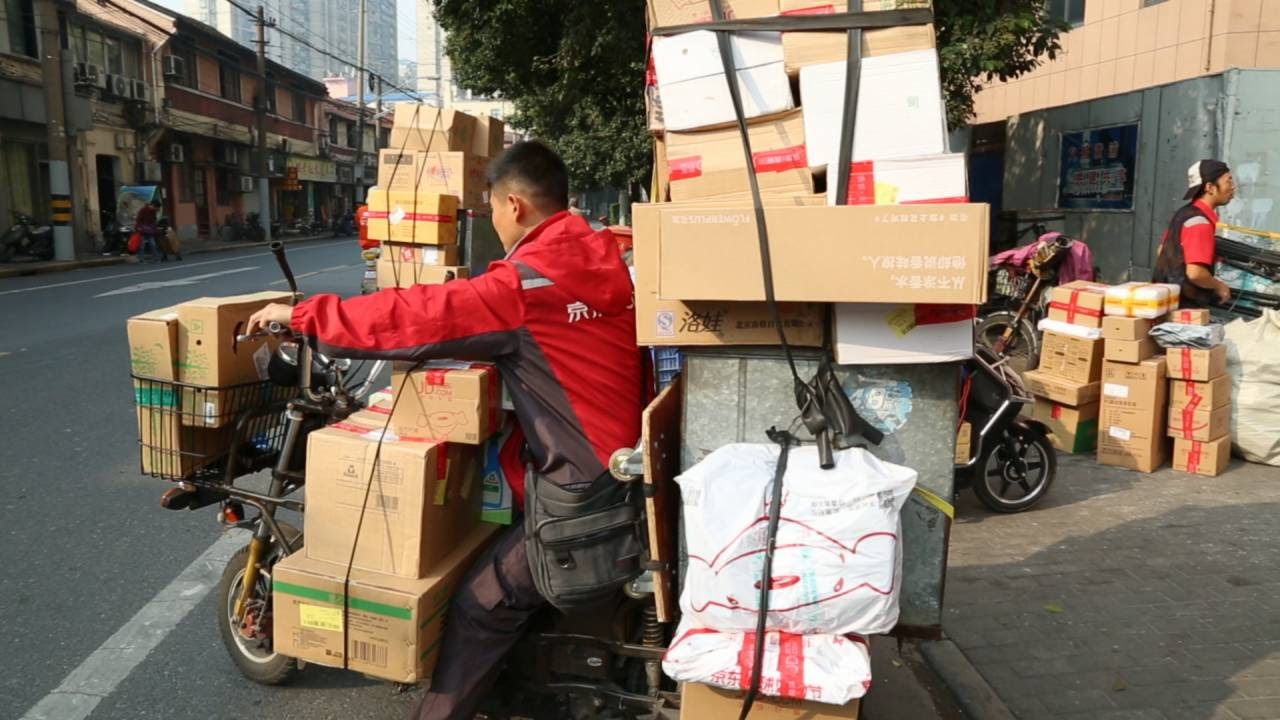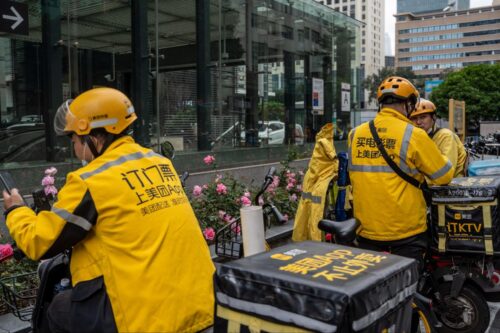Couriers quit before China’s ecommerce shopping festival, demanding better pay and work conditions
Some of the workers who deliver packages for China’s booming ecommerce industry aren’t going to take it anymore, and are not showing up at work.

Double 11, China’s annual ecommerce extravaganza, is two weeks away, so delivery services in China are gearing up for an arduous month ahead. But this year, adding to the pressure to send billions of packages to a population that expects same-day delivery, some major logistics companies are facing another challenge: A loose network of couriers around the country have stopped showing up at work to protest low, unpaid wages and harsh work conditions.
Customer complaints about canceled and delayed deliveries started surfacing earlier this month: Internal documents obtained by the China News Weekly (in Chinese) show that “abnormal operations” were on the rise in five major logistics firms that serve ecommerce companies, including YTO Express and Yunda Express. Express deliveries in multiple areas including Hunan, Jiangsu, and Shanghai, have been affected.
Employees at the logistics companies told reporters that the large-scale disruption was caused by a serious shortage of couriers — the mostly male workers who deliver packages by electric bike the last few miles from ecommerce companies’ warehouse hubs. In the past few months, a substantial number of couriers have walked off their jobs, protesting unfair wages and mistreatment.
The problem with the business model
Thanks to China’s ecommerce boom, the package delivery business in the country has been growing at 30% a year, with established players like ZTO Express and SF Express going public on Chinese and overseas exchanges. But the couriers who power this enormous part of the Chinese economy — largely low-skilled workers from impoverished regions — work for a pittance and live without benefits, legal protections, or bargaining power.
The root of the problem, according to labor activists and legal experts cited by China News Weekly, is the business model: Third-parties agencies usually sign up couriers as contractors, rather than full-time employees entitled to benefits like sick days and health insurance.
It’s a problem for the big delivery companies, as they have no control when labor disputes occur. They are now feeling the pain as a string of third-party agencies which perform last-mile deliveries, have had to either shutter or operate at limited capacity.
The couriers have a lot of reasons to complain. In some extreme cases, China News Weekly says, salaries of couriers have been delayed for months. According to Wáng Lìhuá 王立华, who works as a courier in a small delivery company named in Suzhou that serves Yunda Express, his employer stopped paying monthly salaries to the couriers in August. The total amount of arrears owed to all couriers exceeds 100,000 yuan, around $15,000. Although China News Weekly does not say how many employees the company has, the amount gives an idea of how economically squeezed third party agencies are.
Wang said that while the former manager was fired after the couriers contacted the police, and a “same-day pay” policy had been put in place, the unpaid wage dispute remained unsolved. “We were unable to reach the old manager. And when we contacted Yunda, the only response they gave to us was that they would work on it. We are at a loss as to how we recover the money we are owed,” Wang said.
Mǎ Jiànjūn 马建军, the owner of a Hunan-based package delivery company that services Yunda Express, urged logistics giants to bear more responsibilities. “When a labor dispute happens, these big companies always put the blame on third-party agencies without reflecting on its own management problems,” Ma said.
In a battle to capture customers, SF Express kicked off a price war in May last year, promising to offer the lowest prices in the package delivery industry. This year, after a significant drop in oil prices and the cancellation of highway toll fees across the country, several courier companies including ZTO Express and STO Express followed suit by making aggressive price cuts.
This has taken a toll on couriers, whose earning per delivery has been drastically reduced to 0.7 yuan ($0.10) this year.






